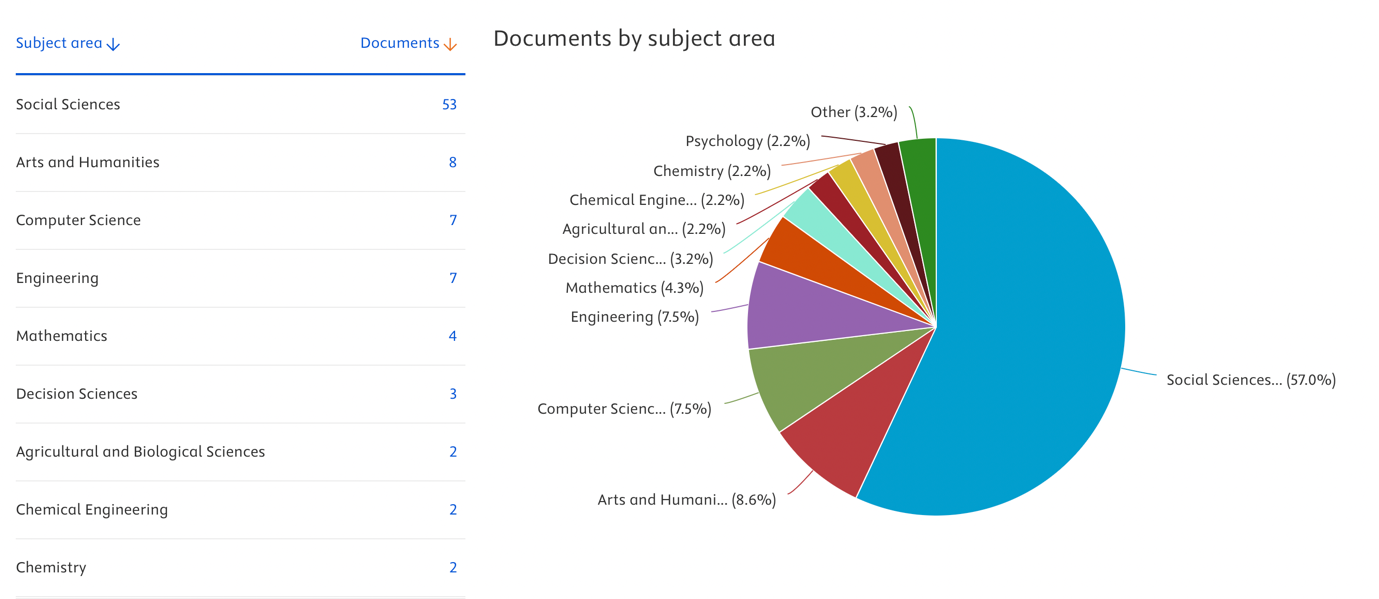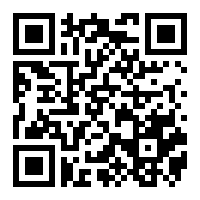Mapping the Evolution of Constructivist Pedagogy: VOSviewer Visualization of Inter-disciplinary Applications, E-Learning Shifts, and Geographic Research Dominance
DOI:
https://doi.org/10.23917/ijolae.v7i3.8096Keywords:
collaborative learning, constructivist learning, engineering education, innovation in learning, inquiry-based learning, learning paradigm shift, modern education, problem-based learning, project-based learningAbstract
10 year research trend of constructivism in modern education is the main goal of this research. Scientific publication data taken from the Scopus database is analyzed using VOSviewer software to visualize networks, overlays, and density visualizations. The results of the study show that constructivism remains an important cornerstone in the development of modern education, shown by a significant increase in the number of publications. The United States dominated research production, followed by China showing increased attention to constructivism. Social Sciences is the field that applies constructivism the most, but other fields such as Arts and Humanities, Engineering, and Computer Science also show significant contributions. The analysis of keyword co-occurrence revealed several important trends, including an increased focus on technology integration (e-learning, modern technologies), the development of a learning environment that supports constructivism, and attention to student learning strategies. Overlay visualization shows the shift in research focus over time, while density view shows the intensity of research on specific topics. The conclusion of this study is that constructivism remains a relevant and dynamic approach in modern education. This research provides a comprehensive overview of the development of constructivism research and can be the foundation for further research that is more in-depth and specific.
Downloads
References
Abubakar, I., Dalglish, S. L., Angell, B., Sanuade, O., Abimbola, S., Adamu, A. L., ... & Zanna, F. H. (2022). The Lancet Nigeria Commission: investing in health and the future of the nation. The Lancet, 399(10330), 1155-1200.
Asmarani, A., Sukarno, S., & El Widdah, M. (2021). The relationship of professional competence with teacher work productivity in Madrasah Aliyah. Nidhomul Haq: Jurnal Manajemen Pendidikan Islam, 6(2), 220-235.
Baskara, F. R., Puri, A. D., & Wardhani, A. R. (2023). ChatGPT and the Pedagogical Challenge: Unveiling the impact on early-Career academics in Higher Education. Indonesian Journal on Learning and Advanced Education (IJOLAE), 311-322.
Bortoluzzi, M., de Souza, C. C., & Furlan, M. (2021). Bibliometric analysis of renewa-ble energy types using key performance indicators and multicriteria decision mod-els. Renewable and Sustainable Energy Reviews, 143, 110958.
Carless, D. (2022). From teacher transmission of information to student feedback literacy: Activating the learner role in feedback processes. Active Learning in Higher Education, 23(2), 143-153.
Donthu, N., Kumar, S., Pandey, N., & Gupta, P. (2021). Forty years of the International Journal of Information Management: A bibliometric analysis. International Jour-nal of Information Management, 57, 102307.
Dwiputra, D. F. K., Azzahra, W., & Heryanto, F. N. (2023). A systematic literature review on enhancing the success of independent curriculum through brain-based learning innovation implementation. Indonesian Journal on Learning and Advanced Education (IJOLAE), 5(3), 262-276.
Dziubaniuk, O., & Nyholm, M. (2021). Con-structivist approach in teaching sustaina-bility and business ethics: a case study. International Journal of Sustainability in Higher Education, 22(1), 177-197.
Emilzoli, M., & Priandani, A. P. (2024). Micro-curriculum design of educational technology product-oriented in entrepreneurship courses. Inovasi Kurikulum, 21(2), 1011-1026.
Hailikari, T., Virtanen, V., Vesalainen, M., & Postareff, L. (2022). Student perspectives on how different elements of constructive alignment support active learning. Active Learning in Higher Education, 23(3), 217-231.
Harrison, T., & Laco, D. (2022). Where’s the character education in online higher education? Constructivism, virtue ethics and roles of online educators. E-Learning and Digital Media, 19(6), 555-573.
Hedar, Y., Emilzoli, M., Priandani, A. P., & Abdullah, M. L. (2025). Strategy to Improve Training Quality in PPSDM Migas: Approach to Educational Aspects, Facilities, and Services. FINGER: Jurnal Ilmiah Teknologi Pendidikan, 4(2), 57-72.
Hernawan, A. H., Emilzoli, M., Rullyana, G., Priandani, A. P., & Saputra, Y. (2025). Enhancing student collaboration and participation through Google Workspace in higher education. IJOEM Indonesian Journal of E-learning and Multimedia, 4(1), 30-42.
Irvaniyah, B. N., Parno, P., & Nawi, N. D. (2025). Mapping the STEM-Creativity Nexus: A Bibliometric and SLR Analysis of Learning Models, Barriers, and Future Directions in Science Education. Indonesian Journal on Learning and Advanced Education (IJOLAE), 375-392.
Ismail, A. S., & Buang, N. A. (2019). Development of entrepreneurship intentions among school students in Malaysia. Indonesian Journal on Learning and Advanced Education (IJOLAE), 48-53.
Kim, J., Lee, H., & Cho, Y. H. (2022). Learn-ing design to support student-AI collabo-ration: Perspectives of leading teachers for AI in education. Education and In-formation Technologies, 27(5), 6069-6104.
Kumar, M., George, R. J., & PS, A. (2023). Bibliometric analysis for medical re-search. Indian Journal of Psychological Medicine, 45(3), 277-282.
Laksmiwati, P. A., Lavicza, Z., & Cahyono, A. N. (2024). Empowering STEAM Learning Implementation through Investigating Indonesian Teacher Experts’ Views with a Delphi Method. Indonesian Journal on Learning and Advanced Education (IJOLAE), 214-229.
Maghfiroh, A., Styati, E. W., Fachriza, A., Khoiriyah, K., Simpol, W., Syaputra, R. A., & Lathifah, L. (2024). Future-ready educators: assessing digital competence and teaching preparedness among prospective teachers in the 21st century. Indonesian Journal on Learning and Advanced Education (IJOLAE), 47-61.
O’Connor, K. (2022). Constructivism, curric-ulum and the knowledge question: ten-sions and challenges for higher education. Studies in Higher Education, 47(2), 412-422.
Orak, S. D. (2021). In between 21st century skills and constructivism in ELT: Design-ing a model derived from a narrative liter-ature review. World Journal of English Language, 11(2), 166-176.
Pardjono, P. (2016). Active learning: The Dewey, Piaget, Vygotsky, and construc-tivist theory perspectives. Jurnal Ilmu Pendidikan Universitas Negeri Malang, 9(3), 105376.
Pessin, V. Z., Yamane, L. H., & Siman, R. R. (2022). Smart bibliometrics: an integrated method of science mapping and biblio-metric analysis. Scientometrics, 127(6), 3695-3718.
Priandani, A. P., Hernawan, A. H., Dewi, L., Emilzoli, M., & Rullyana, G. Artificial Intelligence (AI) trends in higher education learning: Bibliometric analysis. Curricula: Journal of Curriculum Development, 4(1), 609-632.
Sailer, M., Schultz-Pernice, F., & Fischer, F. (2021). Contextual facilitators for learn-ing activities involving technology in higher education: The C♭-model. Com-puters in Human Behavior, 121, 106794.
Saleem, A., Kausar, H., & Deeba, F. (2021). Social constructivism: A new paradigm in teaching and learning environment. Per-ennial journal of history, 2(2), 403-421.
Sharma, N., & Sharma, P. (2021). Construc-tivism: Implication for research and effec-tive learning. Bsss Journal of Education, 10(1), 28-35.
Suhendi, A. (2018). Constructivist learning theory: The contribution to foreign lan-guage learning and teaching. KnE Social Sciences, 87-95.
Sukackė, V., Guerra, A. O. P. D. C., Ellinger, D., Carlos, V., Petronienė, S., Gaižiūnienė, L., ... & Brose, A. (2022). Towards active evidence-based learning in engineering education: A systematic literature review of PBL, PjBL, and CBL. Sustainability, 14(21), 13955.
Utari, V. T., Maryani, I., Hasanah, E., Suyatno, S., Mardati, A., Bastian, N., ... & Reotutor, M. A. C. (2025). Exploring the Intersection of TPACK and Professional Competence: A Study on Differentiated Instruction Development within Indonesia’s Merdeka Curriculum. Indonesian Journal on Learning and Advanced Education (IJOLAE), 136-153.
Utomo, P., & Alawiyah, I. (2022). Family-Based Character Education: The Role of Parenting as the Basic of Character Edu-cation for Elementary Children. JPE: Journal of Primary Education, 2(1).
Yeung, A. W. K., Tosevska, A., Klager, E., Eibensteiner, F., Tsagkaris, C., Parvanov, E. D., ... & Atanasov, A. G. (2022). Medical and health-related misinfor-mation on social media: bibliometric study of the scientific literature. Journal of medical Internet research, 24(1), e28152.
Yu, J., Denham, A. R., & Searight, E. (2022). A systematic review of augmented reality game-based Learning in STEM educa-tion. Educational technology research and development, 70(4), 1169-1194.

Submitted
Accepted
Published
Issue
Section
License
Copyright (c) 2025 Ai Pemi Priandani, Cepi Riyana, Mario Emilzoli, Gamal Adam Alharir, Juwintar Febriani Aruan

This work is licensed under a Creative Commons Attribution 4.0 International License.












